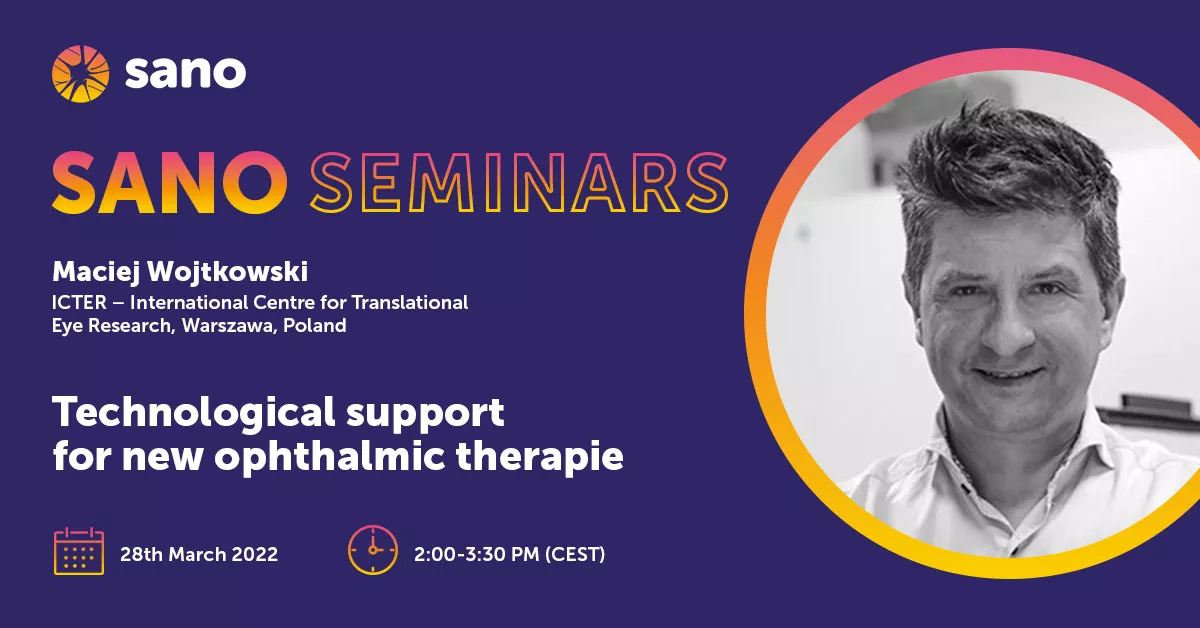
57. Technological support for new ophthalmic therapie
Maciej Wojtkowski – ICTER, International Centre for Translational Eye Research, Warszawa, Poland
Abstract
The retina, or light-sensitive part of the eye, is the initial point of physiological response to light that ultimately leads to the interpretation of our visual world. At the same time, this organ is made of extremely small and delicate tissue that is susceptible to degenerative changes associated with aging, genetic defects, infections or environmental influences. Retinal degeneration is manifested by the gradual death of photoreceptor cells in the retina. For thousands of years of the existence of human civilization, effective ways to treat the eye have been sought, using interventional or pharmacological methods. However, only in recent years the prospects for a real breakthrough in this field have increased thanks to the knowledge of protein mechanisms regulating the process of vision and increasingly precise surgical tools allowing to minimize human errors. The introduction of new therapies alleviating degenerative changes of the retina is not possible without the possibility of monitoring its functions. Development of new technologies ensuring non-invasive and easy acquisition of imaging information about retinal function is crucial for rapid implementation of therapy. The activities of the International Center for Translational Eye Research are focused on these issues.
About the author
Maciej Wojtkowski (b.1975) is active in the field of biomedical imaging. His research interest includes optical coherence tomography and low coherence interferometry applied to biomedical imaging. Maciej Wojtkowski has significant impact on development of Fourier domain OCT (FdOCT) technique. The first FdOCT instrument for in vivo retinal imaging was designed and constructed by dr Wojtkowski and his colleagues from the Medical Physics Group at Nicolaus Copernicus University Poland in 2001. Maciej Wojtkowski also contributed in development and construction of three clinical prototype high speed and high resolution OCT instruments which are in use in ophthalmology clinics: in Collegium Medicum in Bydgoszcz, Poland, New England Eye Center, Boston, USA, and UPMC Pittsburgh. He is an author of more than 250 publications including 130 full papers in peer reviewed journals. During his academic career Maciej Wojtkowski served short internships in Vienna University and University of Kent. He also worked for two years as postdoctoral fellow in joint project between Massachusetts Institute of Technology and New England Eye Center. Currently prof Wojtkowski is a head of the Department of Physical Chemistry of Biological Systems at Institute of Physical Chemistry of the Polish Academy of Sciences where he also leads his own research team (Physical Optics and Biophotonics Group). Recently he started to head the new Center of Excellence of the International Center for Translational Eye Research established at the Institute of Physical Chemistry of the Polish Academy of Sciences.

